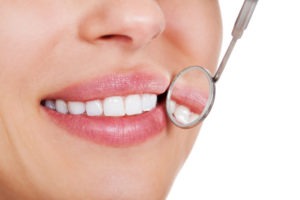 Did you know that only 35% of adults have well-aligned teeth? Although orthodontic options were once limited for both kids and adults, advancements in technology have now allowed us to move past the metal braces of the past and embrace Invisalign treatment in the here and now.
Did you know that only 35% of adults have well-aligned teeth? Although orthodontic options were once limited for both kids and adults, advancements in technology have now allowed us to move past the metal braces of the past and embrace Invisalign treatment in the here and now.
Invisalign braces are clear aligners that are customized to straighten your smile in a way that’s more subtle and convenient for the patient. While Invisalign treatment may sometimes be accomplished in a shorter period compared to traditional orthodontic options, the real appeal is the fact that these aligners are invisible, comfortable, and removable. Although you do need to wear your Invisalign braces for at least 20 to 22 hours per day to see results, this treatment is a far more viable one for adults and teens with busy schedules and concerns about their appearance.
Best of all, Invisalign can be used to treat a wide variety of orthodontic conditions and is suitable for a range of ages. However, not every patient is a good candidate for Invisalign braces. While many dental conditions can be corrected with Invisalign, there may be other underlying concerns that necessitate other forms of treatment.
Generally speaking, Invisalign is a good option for more minor dental issues, including mild overbites and underbites, protruding or crooked teeth, crowded teeth, gaps and overlaps, and crossbites. Teenagers and adults alike can be treated with Invisalign, making it a versatile go-to for many San Mateo orthodontists. Invisalign is also preferred for those who engage in a lot of public speaking, who have busy schedules to maintain, and who play contact sports.
That said, Invisalign may not be the right choice of treatment if you’re dealing with more severe oral health issues. If a patient has a more extreme overbite or underbite, for example, surgery may need to be performed. And if you have gum disease or cavities, those issues will need to be treated prior to exploring Invisalign as an option. Patients who have TMJ, dental implants, or bridges may not want to pursue Invisalign treatment; although they may not be disqualified from using clear aligners, they may find other options are better for their circumstances. Patients who have misshapen or eroded teeth would typically require additional dental work, though Invisalign can also be used in conjunction with these procedures in certain cases.
Young children and those with manual dexterity issues are also not good candidates for Invisalign. In order for this treatment to be effective, the patient needs to be responsible enough to wear their aligners as directed and to remove them when necessary (like for eating, drinking, and brushing). Jawbones also need to be fully formed in order for Invisalign to work as intended. It’s also important to note that those who currently smoke are not good candidates for Invisalign.
Ultimately, it’s up to your orthodontist to determine whether you’re a good candidate for Invisalign braces. If you want to know more about this treatment option, it’s a good idea to make an appointment with your oral care specialist. Contact our offices today for additional information or to schedule an appointment of your own. We’d love to help make your smile even more beautiful.